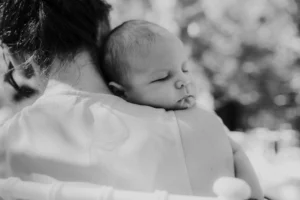Tough question to answer; do you struggle with how to be calm and collected and not yell at your kids?
If you are nodding yes, you are in good company. Because I will let you in on a little secret; I do too. We all lose our patience sometimes. Our kids push our buttons to the point we just snap.
Every time it happens, I feel guilty. I know that when I can keep my composure, I am a much better parent. While yelling is an effective process, I always feel like I am dropping the parenting ball.
When I can keep my composure and not snap, or yell at my kids, I feel a parenting euphoria where I am able to manage a resolution through a calm, controlled composure along with suggestions on how to resolve the situation. By doing so, my child is able to settle down quickly and is open to listening to me because I am offering solutions that resonate with their little minds, and they are able to choose an option that they are able to accomplish and the situation is under control. This is a win-win for both of us.
I love these moments, don’t you? They really are the best. However, there is a lot to be said for keeping calm around our children. It reaches depths far beyond what makes us feel like we are being going parents.
In 2014, there was a study performed by Psychological Science. The study incorporated researchers from the University of California, San Francisco, and New York City. In this study, researchers separated mothers and infants for a brief period of time, during which mothers were exposed to some mild negative stressors. When reunited with their infants, they found the infants embodied the same mild negative stressors as their mothers had experienced.
While there is no exact scientific justification to show how these emotions were transferred, especially considering the infant was not directly exposed to the stressor, there is no doubt the infants showed signs of sensing the stress within their mothers. It just goes to show the bond between mother and child is one that cannot be taken lightly or disproven with science.
There have been additional studies, one in particular from the University of California, Riverside, that indicated the opposite effect of the former distresses. In this case, the parents who knew how to be calm and collected as they helped their children with a frustrating laboratory challenge, were able to emulate that same emotion in their children; they were calm and focused as well.
So, in non-scientific terms, what does this mean? Basically, when you are showing signs of distress or calm, are quite possibly passing those emotions on to your little ones. Similar to a yawn, they are contagious for reasons we cannot pinpoint.
We all know that as parents, stress is a factor in our lives. Unless you have your own personal genie in a bottle granting every wish, it is an unavoidable fact of life. We will break and take out our stress or frustration on our kiddos. Please know you are not alone and there is no reason to beat yourself up over it. I would recommend finding what your triggers are so that these instances are kept to a minimum. We want to focus on how to avoid taking our stress out on our children or knowing when we feel that stress building up so that we can take a walk, count to ten, whatever helps you avoid these outbursts with your little one.
My guess is if you are reading this blog, there is a good chance you are either getting started on sleep training or are knee-deep in the middle of getting your little one to sleep through the night. Regardless of where you are in the process, you will either start to be or will be, sleep-deprived. When we are tired, it is far more common to be easily agitated, short-tempered, or easily frustrated. This can mean snapping at others, raising our voices, or letting our frustration win. From what we have already discovered, these feelings transfer to our little ones and when this happens it raises their cortisol production and now we both don’t know how to be calm and collected and for one of us, it was not self-generated.
I get it. I know it is not easy. I have been with Rocky Mountain Sleeping Baby for a few years now, and I see this often with new clients. What I recommend to my parents is finding a good place to go to in your head and make a commitment to yourself that you will do your best to learn how to be calm and collected and create a safe word or a safe point where when you feel that frustration build you know how to take a beat, take a breath, and stay calm. Choose what works for you whether it is taking a walk around the house, focusing on deep breaths, stretching or yoga poses, or reading a couple of pages of a book. There is a calming resource for all of us and identifying yours before you begin this process is key to success.
Many of you may be taking this process on by yourself, and many of you may be working with a partner. If you are working with a partner, I highly suggest you create a plan ahead of time of what shift each of you is taking. This can also be helpful for when one of you is feeling frustrated on your shift, you can have a preconceived solution of how to assist them in how to be calm and collected when they are frustrated, if necessary. Reminding each other this is for the best benefit of your child, and for their best night sleep (and yours!) Remember, the first couple nights are the hardest and around night three or four, you will start to see improvement.
Keep in mind that after those first few rough nights, you are watching your sweet little one sleeping soundly through the night and you managed to make it through without losing your cool, fighting with your partner, and have no lingering feelings of frustration or guilt. That is amazing! You deserve to hang up your parent of the year award on the fridge for all to see. Or celebrate your victory, because when it comes to parenting, any opportunity to celebrate a win is well deserved!
Just like all parenting challenges, this too shall pass, and when you are all sleeping soundly through the night, it will all be worth it!





